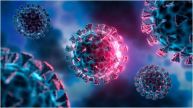In recent years, the ketogenic diet has gained popularity as a means of weight loss and improved health. One individual who has seen success with this diet is Nic (professor Nikolaos Tzenios), who has experienced improvements in markers of cardiovascular health. In this blog post, we’ll explore the keto diet, cardiovascular health, and how Nic’s diet has improved their cardiovascular health markers.
We’ll also discuss the potential risks and benefits of the keto diet and provide tips for minimizing risks. If you’re interested in the keto diet or improving your cardiovascular health, read on to learn more.
What is the Keto Diet?
Popular among health enthusiasts, the keto diet has quickly become one of the most talked about nutritional plans. Cutting down on carbohydrates and increasing fats, puts your body into a state of “ketosis” – where fat is burned for energy instead of carbs!
TRCGEN+ sponsored a pioneering study conducted by KGK Science to explore how Nic’s Keto Diet (NKD), an ultra-low-carb ketogenic diet, could help improve cardiovascular health in adults with slightly raised LDL cholesterol. NKD focused on healthy fats as its primary source of energy while limiting carbohydrates and restricting calories from proteins — providing the body with 75% fat, 25% protein, and only 5 % carbs daily!
Participants used nutrient-dense foods such as cruciferous vegetables, avocados, and eggs; meats including seafood; natural sources of high-fat dairy products like organic grass-fed oils & butter. Results showed promise that this revolutionary weight loss plan has the potential to bolster cardiac wellness among those affected by elevated levels of bad cholesterol.
The Macronutrient Ratios in the Keto Diet
The keto diet is a dramatic shift away from the traditional high-carb American eating style – it calls for up to 75% of calories to come from fat, 25% protein, and just 5-10% carbohydrates. By doing so, those seeking ketosis can stimulate their body’s metabolic changes enabling them to reach optimal health goals.
How the Keto Diet Affects the Body
When the body enters a state of ketosis, it ignites an amazing transformation! It uses molecules called ketones for energy, causing stored fat to burn off quickly. Studies have even revealed that this metabolic shift can decrease inflammation in some people and increase insulin sensitivity as well as cognitive function—allowing them to unlock their highest potential.
However, it’s important to note that it is not suitable for everyone. Some people may experience side effects such as the “keto flu,” which can include symptoms such as fatigue, headache, and nausea. Additionally, the high-fat content of the diet can be a concern for some individuals, particularly those with a history of heart disease or high cholesterol.
With smart guidance and mindful eating, it can be a powerful ally in your journey toward lasting weight loss and improved well-being. Before taking on this dietary lifestyle change, it’s important to seek advice from knowledgeable healthcare professionals who can help you decide if it’s right for you!
Importance of Cardiovascular Health
Cardiovascular health refers to the health and function of the heart and blood vessels. It encompasses a range of factors, including blood pressure, cholesterol levels, and overall heart health.
Maintaining good cardiovascular health is essential for overall health and well-being. Cardiovascular disease is a leading cause of death worldwide, and poor cardiovascular health can lead to a range of health problems, including heart attack, stroke, and peripheral artery disease. Improving cardiovascular health can also help reduce the risk of other health problems, such as diabetes and kidney disease.
How Cardiovascular Health Is Measured
Cardiovascular health is measured using a range of tests and measurements. Some common measures of cardiovascular health include blood pressure, cholesterol levels, and body mass index (BMI). Additional tests, such as electrocardiograms (ECGs), stress tests, and echocardiograms, may also be used to assess cardiovascular health and detect any potential problems. Your healthcare provider can help determine which tests are appropriate for your individual needs.
How Nic’s Keto Diet Improves Markers of Cardiovascular Health
There are several markers of cardiovascular health that are commonly measured, including blood pressure, cholesterol levels, and triglycerides. These measures can provide insight into the health and function of the heart and blood vessels.
How Nic’s Keto Diet Improves These Markers
Research has shown that the ketosis diet can improve several markers of cardiovascular health. For example, a 2013 study found that individuals following a ketogenic diet experienced significant reductions in body weight, blood pressure, and triglycerides, all of which are risk factors for heart disease.
A 2018 study uncovered that it can have positive effects on cholesterol levels, specifically improving HDL “good” cholesterol. This primes your body to better process and regulates fatty acids from food.
Nic’s experience supports these findings. Since starting the keto diet, Nic has seen improvements in their blood pressure, cholesterol levels, and triglycerides. These improvements are likely due to the weight loss and improved insulin acuity associated with the keto diet.
How the Keto Diet May Reduce the Risk of Heart Disease
Fourteen brave individuals with slightly elevated cholesterol levels committed to the NKD diet for 140 days, foregoing sweeteners and most fruits except berries as well as starchy vegetables, low-fat dairy products, soy grains beans, and alcohol. The results? A remarkable 8.55 kg weight loss plus a 4.41% decrease in body fat percentage – accompanied by an increase in muscle mass!
Furthermore, this daring dietary challenge was associated with improved ‘good’ HDL cholesterol levels plus decreased blood pressure & glucose readings across the board – proving that sometimes taking risks yields impressive rewards!
It may reduce the risk of heart disease in several ways. For one, it can help promote weight loss, which is a major risk factor for heart disease. Additionally, it has been shown to improve insulin sensitivity, which can reduce the risk of type 2 diabetes, another major risk factor for heart disease.
The keto diet can be a powerful ally in your quest for cardiac health, as it helps to boost the “good” cholesterol (HDL) and reduce levels of unhealthy LDL. With its role in regulating risk factors associated with heart disease – such as high LDL cholesterol – this popular nutritional approach stands out among other diets, making it an effective way to promote cardiovascular well-being.
Overall, Nic’s experience and scientific research suggest that it can improve several markers of cardiovascular health and potentially reduce the risk of heart disease. However, it’s important to work with a healthcare professional to determine if it is appropriate for your individual needs and to ensure that you are following it in a safe and healthy manner.
Other Benefits of Nic’s Keto Diet
In addition to improving markers of cardiovascular health, the keto diet has been associated with a range of other health benefits. These include:
- Weight loss: Ever heard of the trendy keto diet? It’s all the rage for its powerful fat-burning capabilities and ability to keep hard-earned muscle mass intact.
- Improved insulin sensitivity: With the keto diet, your insulin sensitivity could improve and help ward off type 2 diabetes. Taking charge of your health has never been easier!
- Reduced inflammation: Eating a ketogenic diet has been linked to a reduced risk of serious illnesses like cancer and Alzheimer’s, largely due to its ability to reduce inflammation throughout the body.
- Increased energy levels: People who try the keto diet often find themselves with newfound energy and vitality. This could be because of the balanced blood sugar levels and improved internal functioning that this unique method provides.
How the Keto Diet May Improve Overall Health and Well-Being
The keto diet can improve overall health and well-being in several ways. By promoting weight loss and improving insulin sensitivity, the diet can help reduce the risk of chronic diseases like diabetes, heart disease, and cancer. Additionally, the diet’s anti-inflammatory properties may help reduce the risk of other chronic diseases, while the increased energy levels and improved mental clarity associated with the diet can help enhance overall well-being.
However, it’s important to note that the keto diet is not appropriate for everyone and can have potential side effects, such as keto flu and nutrient deficiencies. It’s important to work with a healthcare professional to determine if the keto diet is right for you and to ensure that you are following it in a safe and healthy manner.
The evidence is overwhelming – Nic’s Keto Diet (NKD) could be the answer to preventing cardiovascular disease in those with elevated cholesterol. Not only did participants find it easy and safe to follow, but the results showed a positive effect on body composition as well as improved cardiovascular health!
Who is Nic?
Professor Doctor Nikolaos Tzenios, a PhD in Public Health and medical research, a Doctor of Business Administration, PhD in Psychology, a Doctor of Public Health Sciences candidate, and a Doctor of Criminal science candidate, and a PhD in Global Security candidate.
Professor of Public Health and Medical Research.
Nikolaos Tzenios is a leading contender for the title of the most highly educated person in the world. He is the Senior Vice president of the World Academy of Medical sciences and a member of the scientific board of the European Medical Association.
He completed Three postgraduate medical certificates from Harvard Medical School, a diploma from Sorbonne Medicine, and another from Pasteur Institute.
Conclusion
In conclusion, Nic’s experience with the keto diet provides evidence for the diet’s potential to improve markers of cardiovascular health, including blood pressure, cholesterol levels, and triglycerides. These improvements are likely due to the weight loss and improved insulin sensitivity associated with the diet. In addition to these benefits, the keto diet has been associated with other health benefits, including weight loss, improved insulin sensitivity, reduced inflammation, and increased energy levels.
However, it’s important to note that the keto diet is not appropriate for everyone and can have potential side effects. It’s important to work with a healthcare professional to determine if the keto diet is right for you and to ensure that you are following it in a safe and healthy manner.
Overall, Nic’s experience and scientific research suggest that the keto diet may have benefits for improving cardiovascular health and promoting overall health and well-being.










